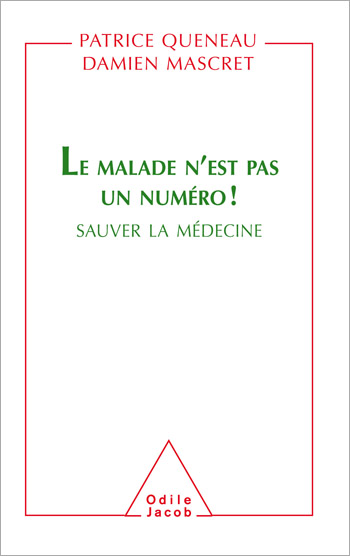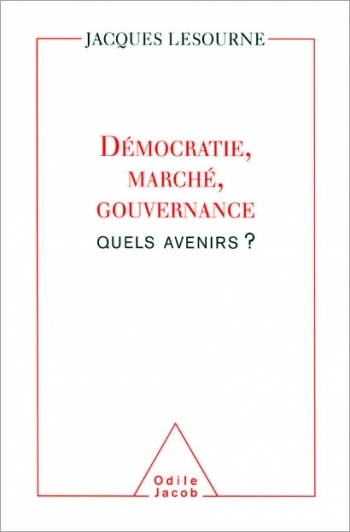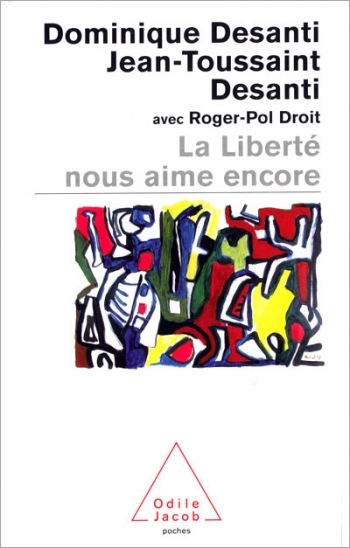Catalog All books
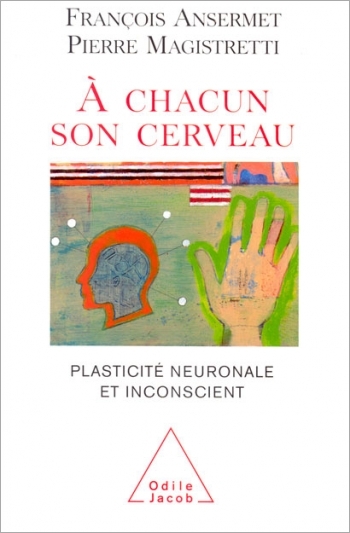
François Ansermet, Pierre Magistretti
To Each His Own Brain Biology of the Unconscious
This book is the result of the coming together of psychoanalysis and neuroscience around the shared observation that experience leaves a mark. Although the idea that experience produces psychic imprints - whether conscious or unconscious - has always been central to psychoanalysis, it was not until recently that findings in neurobiology demonstrated that neuronal plasticity existed and that it operated throughout a person's life. This constant remodelling in relation to experience poses certain basic questions about each individual's identity and future. How does psychic life emerge from experience and from what it imprints? What are the respective contributions of external stimuli (the reality behind experience) and of internal stimuli (the imprinted marks)? How do the mechanisms of synaptic plasticity participate in the establishment of an unconscious internal reality? What is the role of the body in this new dynamic organisation? This book provides the foundations for a better understanding of the relations between neuroscience and psychoanalysis and offers an original theory of the unconscious, by combining recent findings in neurobiology with the basic principles of psychoanalysis. Eschewing genetic determinism, it shows that each individual is different and each brain unique. Pierre Magistretti, a physician and neurobiologist, is a professor of physiology and director of the Centre for Psychiatric Neuroscience at the University of Lausanne's medical school. In addition, he is the president of the Federation of European Neuroscience Societies. François Ansermet is a psychoanalyst and professor of child and adolescent psychology at the University of Lausanne. He is the co-author, with O. Halfon and B. Pierrehumbert, of Filiations psychiques (Presses Universitaires de France, 2000).
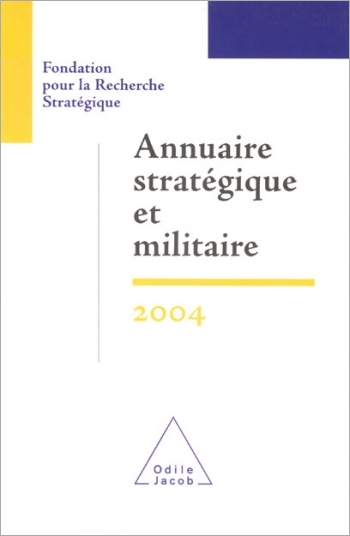
Fondation pour la Recherche Stratégique, François Heisbourg
Strategic and Military Yearbook 2004
As the consequences of U.S. involvement in Iraq are making themselves felt worldwide, and as the U.S. presidential campaign comes to a climax, this book provides a timely survey of the changing strategic and geopolitical landscape. The articles included here, written by some of the top experts in their fields, evaluate the repercussions for all of us of developments in the world's most powerful nation; they also examine the so-called clash of civilisations and consider the real risks of such a clash. This is an indispensable, complete and informed book that will enable readers to understand present and future changes in the global situation. A veritable gold mine of information, the Annuaire stratégique et militaire provides an annual examination of France's defence situation and allows a comparison with France's partners. François Heisbourg, an internationally renowned specialist in international and defence issues, is the director of the Fondation pour la Recherche Stratégique (FRS) and president of the International Institute of Strategic Studies. He is the author of Hyperterrorisme: la nouvelle guerre (2001) and the editor of Annuaire stratégique et militaire 2002 (English edition: French Strategic and Military Book) and Annuaire stratégique et militaire 2003, all published by Editions Odile Jacob.
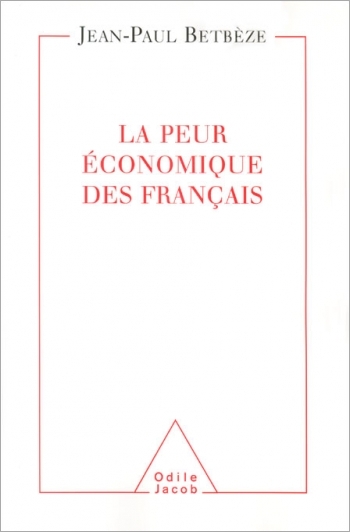
Jean-Paul Betbèze
French people's economic fear
France has economic possibilities, but it remains blocked in several areas. Although the country's leaders are aware of this, they seem unable to make the necessary reforms to move forward. France seems to be the prey of fears that paralyse it, but which have benefited a new class of economic as well as social rentiers who constitute a powerful economic, ideological and political group. These new rentiers are fully cognisant that the defence of their acquired privileges is not a practical long-term solution - as has been shown by rising deficits, decreased competitiveness and job losses. The author argues that it is necessary to make changes and implement reforms - and to do so it is essential to understand and overcome existing fears. It cannot be expected that everything will be changed at once, but some initial efforts must be made. The single reform that will fix everything does not exist, he says, but this is hardly an excuse for refusing to make a start. In other countries, programmes for economic reform are being implemented. Yet France is only beginning to consider such reforms. The object of this book is to provide a greater understanding of the present situation, in the form of a how-to manual. A ruthless analysis of some of France's psychological blocks, apprehensions and economic fears, this book can be regarded as a sort of economic psychotherapy. In addition, the author provides a critique of the false solutions that hinder modernisation and proposes his own solutions for change and reform. Jean-Paul Betbèze is a professor of economics at the University of Paris Panthéon-Assas and a member of the French prime minister's Council for Economic Analysis. He is a consultant to the president and the C.E.O. of a major bank and the author of Les Dix Commandements de la finance, which was awarded the Risques-Les Echos Prize in 2004.

Claude Béata
Dog Psychology Stress, anxiety and depression
Many dogs suffer from such psychological problems as phobias, hyperactivity, separation anxiety and depression. This book recounts the stories of seven dogs, whose behaviour had become so erratic that their owners were on the verge of getting rid of them. Their veterinarian (the author) presents their stories as an investigation, taking the reader back to the origin of each disorder and then describing the form of therapy he used to enable each dog and its owner to cohabit in harmony. Written in a lively, often humorous style, this practical book will help readers understand the emotional life and behaviour of dogs. The chapters are presented in the form of accessible stories interspersed with sidebars containing relatively more technical information. Claude Béata is a behaviourist veterinarian and a member of the European College of Behaviourist Veterinarians. A specialist in emotional attachment, he is the co-author, with Boris Cyrulnik, of several interdisciplinary studies in comparative pathology.
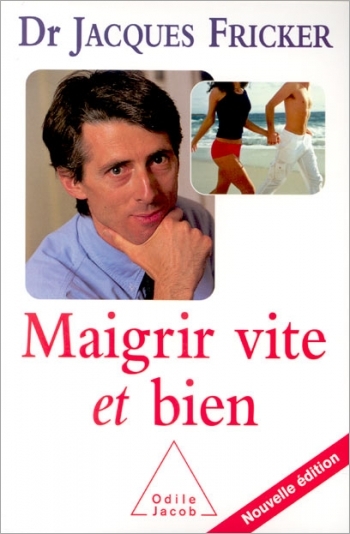
Jacques Fricker
Maigrir vite et bien (Nouvelle édition)
How should you eat to keep healthy while remaining slim? What should you do to maintain your ideal weight, without having to diet constantly and without putting on excess kilos over the years? If you have successfully followed a diet, how can you keep from putting the extra weight back on? How can you avoid the cycles of weight loss and weight gain? Above all, how can you keep your figure, as well as your health, and safeguard against illness by eating an optimal diet? How can you stay slim while remaining energetic and without feeling tired - i.e. by keeping at the top of your physical and mental form? This book shows how a single diet can enable you to simultaneously achieve these three goals - figure, form, health - since all food types that are good for your figure are also good for you and, inversely, those that are bad for the figure are also bad for you. All you have to do is follow some basic dietary rules and adapt them to your own lifestyle. In this practical, useful book the author offers advice that is both scientifically sound and applicable to everyday life: choosing and cooking the most suitable foods to meet the three goals, making the best shopping selections, composing balanced menus in relation to age and lifestyle. He also addresses such questions as: What other means, besides diet, are there to meet the three goals? What role does exercise play? What should you do to have a flat tummy? Numerous recipes are given at the end of the book. Jacques Fricker is a physician specialising in nutrition at Hôpital Bichat, in Paris, and the author of Le Guide du bien maigrir, Maigrir vite et bien and Bien manger pour être au top.

